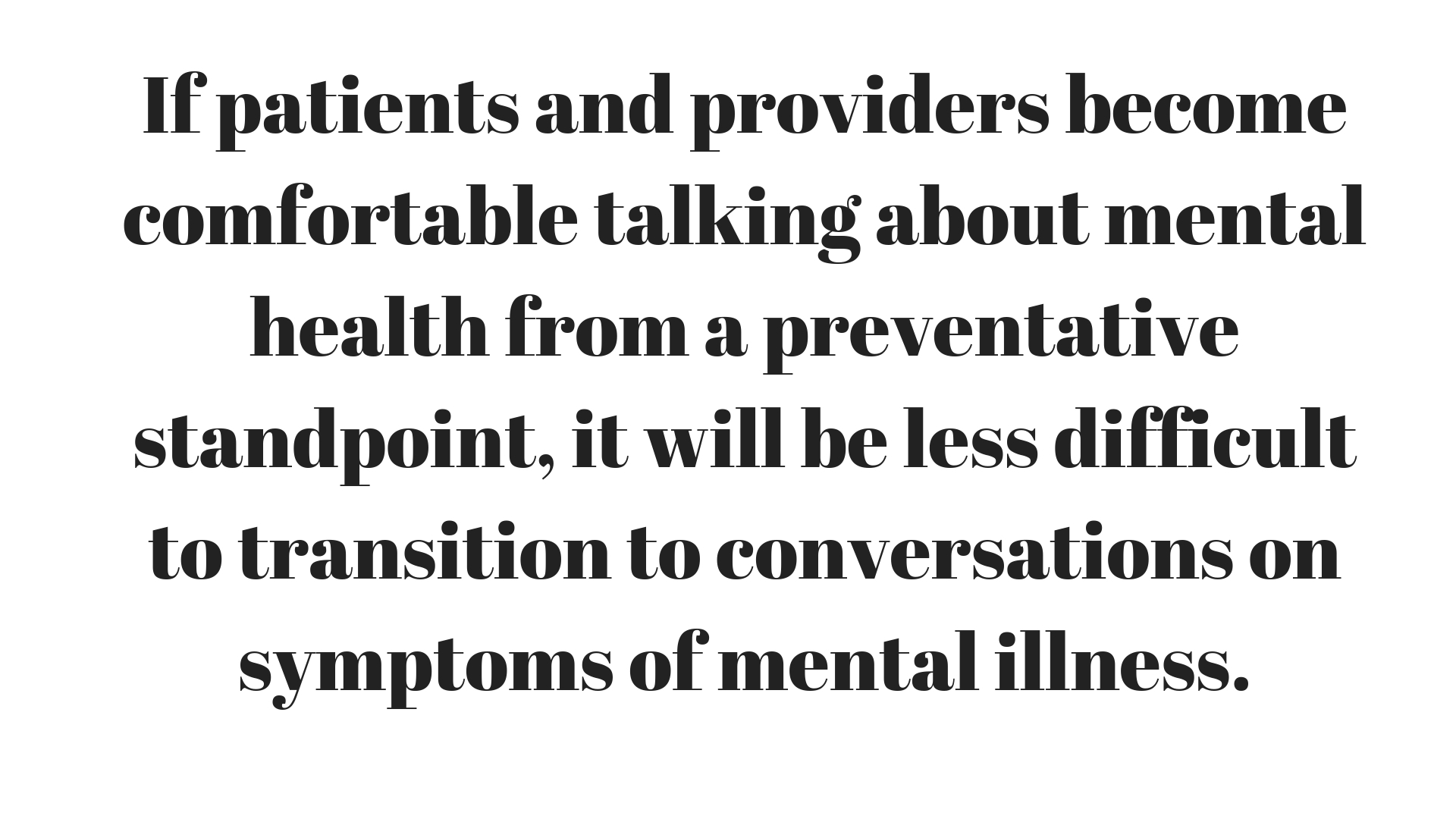 #UMNMCH student Olivia Beckman (MPH 2019) wrote this reflection on her field experience opportunity with the Minnesota Department of Health (MDH), where she assisted in promoting maternal mental well-being. This field experience was facilitated through a deployment funded by the Center for Leadership Education in Maternal and Child Public Health.
#UMNMCH student Olivia Beckman (MPH 2019) wrote this reflection on her field experience opportunity with the Minnesota Department of Health (MDH), where she assisted in promoting maternal mental well-being. This field experience was facilitated through a deployment funded by the Center for Leadership Education in Maternal and Child Public Health.
As a former family medicine physician with a long-term interest in global health, I entered the Maternal and Child Health (MCH) MPH Program. My goal is to gain a population perspective with a focus on solving mental health concerns globally, particularly among women and children. As I started to envision what I wanted to accomplish during my field experience, I desired to connect the concepts of the life course model presented in my Foundations of MCH Leadership course to mental health promotion. If adverse childhood experiences (ACES) could have health consequences not only in children, but also as they grow through adulthood and old age, it seemed to me that mental health promotion really needs to start in the perinatal period: mental health is an MCH issue.
Creating My Field Experience
In seeking an outlet for further experience along these lines, I contacted Anna Lynn , who is the Mental Health Promotion Coordinator within the Community and Family Health Division at the MDH. On meeting for coffee over the winter break, she described a project that was initiated by the Perinatal Mental Well-being Advisor Board for a “Promoting Maternal Mental Wellbeing Provider’s Guide for Clinicians” that would provide evidence and encouragement to advocate for mental wellness and prevention of postpartum depression. An initial draft had been started by an undergrad and a previous MPH student, but needed to be taken to the next phase, which meant including specific information that a clinician would want to know. We decided to work together to significantly revise the document’s content and direction in order to make the Provider’s Guide useful and appealing to the target population.
Connecting Mental Health to the Life Course Model and Social Determinants of Health
Medical providers are trained to recognize symptoms of mental illness. They learn to understand that, as a major depressive disorder, radar systems are triggered when symptoms of anhedonia, depressed mood, or changes in appetite, weight or sleep are uncovered. However, from a public health perspective, this is only the tip of the iceberg. In 2014, is was estimated that 43 million US adults were living with mental illness, while only 13% of those received treatment (Asher, Gerkin & Gaynes, 2017). The World Health Organization reported in 2001 that depression was the fourth leading cause of global burden of disease. By 2010, depressive disorders rose to take second place for leading cause of global burden of disease (Ferrari et al., 2013).
Many contributing factors for the development of mental illness stem from social determinants of health, namely the conditions in which people are born, grow, work and age. These may be directly related to health, or may be related to education, economic stability or community and neighborhood contexts. Adverse events that occur in childhood can have devastating effects into adulthood.
 By taking a step back, patients’ mental health can be approached from a life course perspective. Like preventing coronary heart disease by screening for lipid levels or hypertension, physicians ideally should assess markers of mental wellbeing in order to prevent mental illness. The current magnitude of mental health disorders and paucity of access to and utilization of treatment demands a paradigm shift in thinking from solely the diagnosis of mental illness to the incorporation of prevention of mental illness by advocating for lifestyle patterns that lead to wellbeing.
By taking a step back, patients’ mental health can be approached from a life course perspective. Like preventing coronary heart disease by screening for lipid levels or hypertension, physicians ideally should assess markers of mental wellbeing in order to prevent mental illness. The current magnitude of mental health disorders and paucity of access to and utilization of treatment demands a paradigm shift in thinking from solely the diagnosis of mental illness to the incorporation of prevention of mental illness by advocating for lifestyle patterns that lead to wellbeing.
Not only would a focus on mental wellbeing represent a preventative health measure, it would also allow for health care providers to address mental health issues in a world that is paralyzed by the stigma of mental illness. If patients and providers become comfortable talking about mental health from a preventative standpoint, it will be less difficult to transition to conversations on symptoms of mental illness. Particularly among women that are thinking to start a family, antenatal through postpartum visits would be an ideal time to open discussion about mental wellbeing, breaking down barriers, so that ACEs can be avoided, and women can have a framework to think about goals for their own and their families’ health. In addition, women of childbearing age and children have very few recommended options for medication management of psychiatric illness. Strategically, a focus on prevention of mental illness would allow for safe management of mental well-being for this critical population. By increasing our awareness of the evidence-based science supporting strategies for promoting wellbeing, we can encourage lifestyle modifications and refocus on a goal of overall mental health, rather than the treatment of illness.
About the Maternal Mental Wellbeing Provider’s Guide for Clinicians
During my spring 2018 semester, I have gathered observational and controlled trial data on topics such as exercise, nutrition, sleep quality, mindfulness, social support, community connectedness, economic status, acupuncture, nature and forgiveness. In the Guide, evidence-based science for each topic was summarized and a box was created to bullet the most important points for easy memory and reference. Websites and handouts are listed for each topic.
One of the most surprising discoveries for me has been the difference between social support and community connectedness. The perinatal period is an ideal time to share resources available to potential mothers, so that they have the best chances of weathering the trials of pregnancy and motherhood with mental wellness and raising children that are resilient and healthy, both physically and mentally.

When I think of the core competencies of MCH (knowledge base, critical thinking, negotiation, communication, teaching and mentoring, and family centered care) many of them are realized in this project. As MCH practitioners consider the importance of the family, I realize that, in some sense, all people–and physicians in particular–have the potential to impact outcomes for women and children: when social determinants are addressed and mental well-being is promoted in mothers, the health and well-being of their children will follow.
I want to thank the staff and faculty at the division of MCH here at the UMN for their encouragement and helpfulness, in allowing me to pursue my interests in designing and implementing my field experience. For those of you that have the field experience to look forward to, dream big – if you want it, you can do it.
Olivia Beckman, MD, is a second year student in the MCH Program at the UMN. She completed her bachelor’s degree at the University of Oregon in Biology, followed by medical school at Albert Einstein College of Medicine. She has worked in the field of eating disorders treatment at Methodist Hospital, MN, as well as at Walden Behavioral Care in Waltham, MA as the eating disorders program medical director. Olivia, now married with two sons, is currently pursuing an MPH in maternal and child health at the University of Minnesota with an interest in global health.
Read Student Spotlight Archives
Interested in learning more about getting a degree in Maternal and Child Health? Visit our MCH Program page for more information.
#UMNMCH #UMNProud #UMNDriven